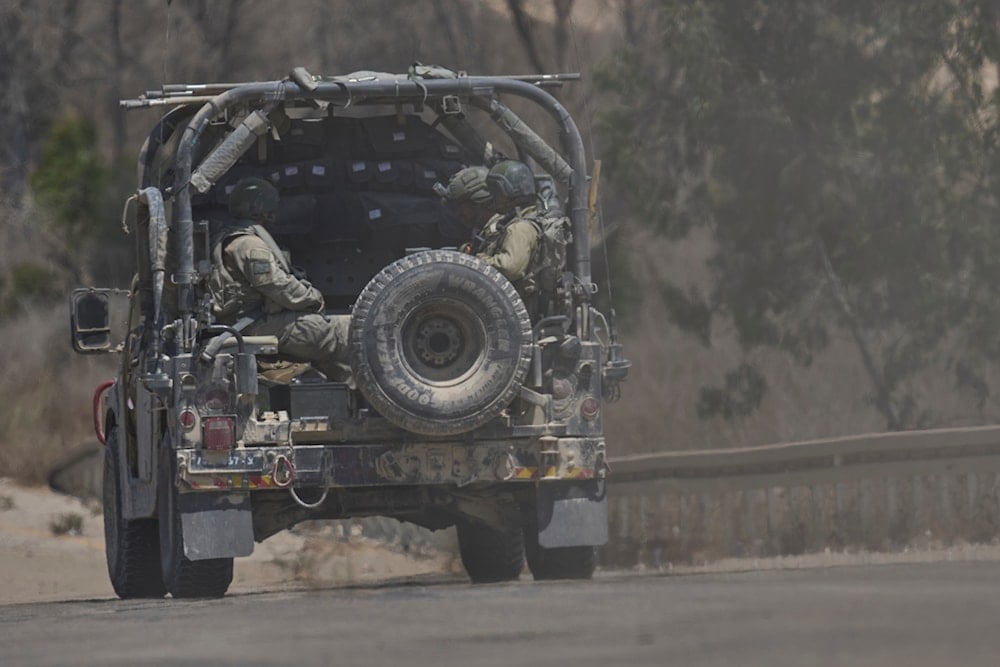Exhausted Israeli troops complicating operations in Gaza: NYT
Israeli reservists are refusing duty, threatening Netanyahu’s escalating war on Gaza and exposing strain within the occupation's military after nearly two years of war.
-

Israeli soldiers drive near the border with the Gaza Strip, Wednesday, July 2, 2025 (AP)
After hundreds of days of military service exhausted them, the number of Israeli reserve soldiers enlisting has decreased, while others are refusing to fight in a war they no longer believe in, The New York Times reported.
"Israel" is preparing to call up tens of thousands of reservists for its invasion of Gaza City, but military officials admit it's unclear how many will answer the summons after nearly two years of war.
In recent months, a growing number of Israeli reservists have been failing to report for duty. Some cite exhaustion, along with the need to salvage strained marriages or faltering careers, while others express growing disillusionment with the war.
Discontent obstructs Netanyahu's plans
The growing discontent within the military ranks threatens to complicate Prime Minister Benjamin Netanyahu's plan to occupy Gaza City in a bid to "decisively crush" Hamas, as the army has announced it plans to call up an additional 60,000 reservists and extend the service of another 20,000.
Beyond the war on Gaza, the Israeli military remains engaged on multiple additional fronts, with its soldiers now carrying out assaults and patrols in parts of southern Lebanon and Syria while also escalating major incursions into Palestinian cities across the West Bank.
The absence of official figures on reservist withdrawals from the Israeli military has obscured the true extent of this trend. The difficulty in measuring it was exemplified in May by a senior military official's testimony to a parliamentary committee, which acknowledged some attrition but maintained that the vast majority of reservists were still answering the call to duty.
Conflicting testimonies
Four soldiers who spoke with The New York Times in recent months conveyed that morale within their units remains high and that the will to fight persists. However, about a dozen other officers and soldiers described units that were depleted and exhausted, with at least two saying that 40 to 50 percent of their fellow reservists had not returned to duty.
One soldier reported that attendance in his 100-soldier company has gradually fallen to just 60 percent, a decline he and others attributed to mounting domestic tensions over childcare, increasing problems with their civilian careers, and mounting mental health concerns. The soldier noted that the Israeli army started offering incentives for reservists, where their units deploy for a week, followed by paid time off for two weeks.
One infantryman reported that only half of his team arrived for their most recent mobilization late last year. A separate reserve platoon leader added that while his troops continue to report for duty, he knows of other officers who are now grappling with attendance rates that have fallen as low as 40%.

 3 Min Read
3 Min Read








